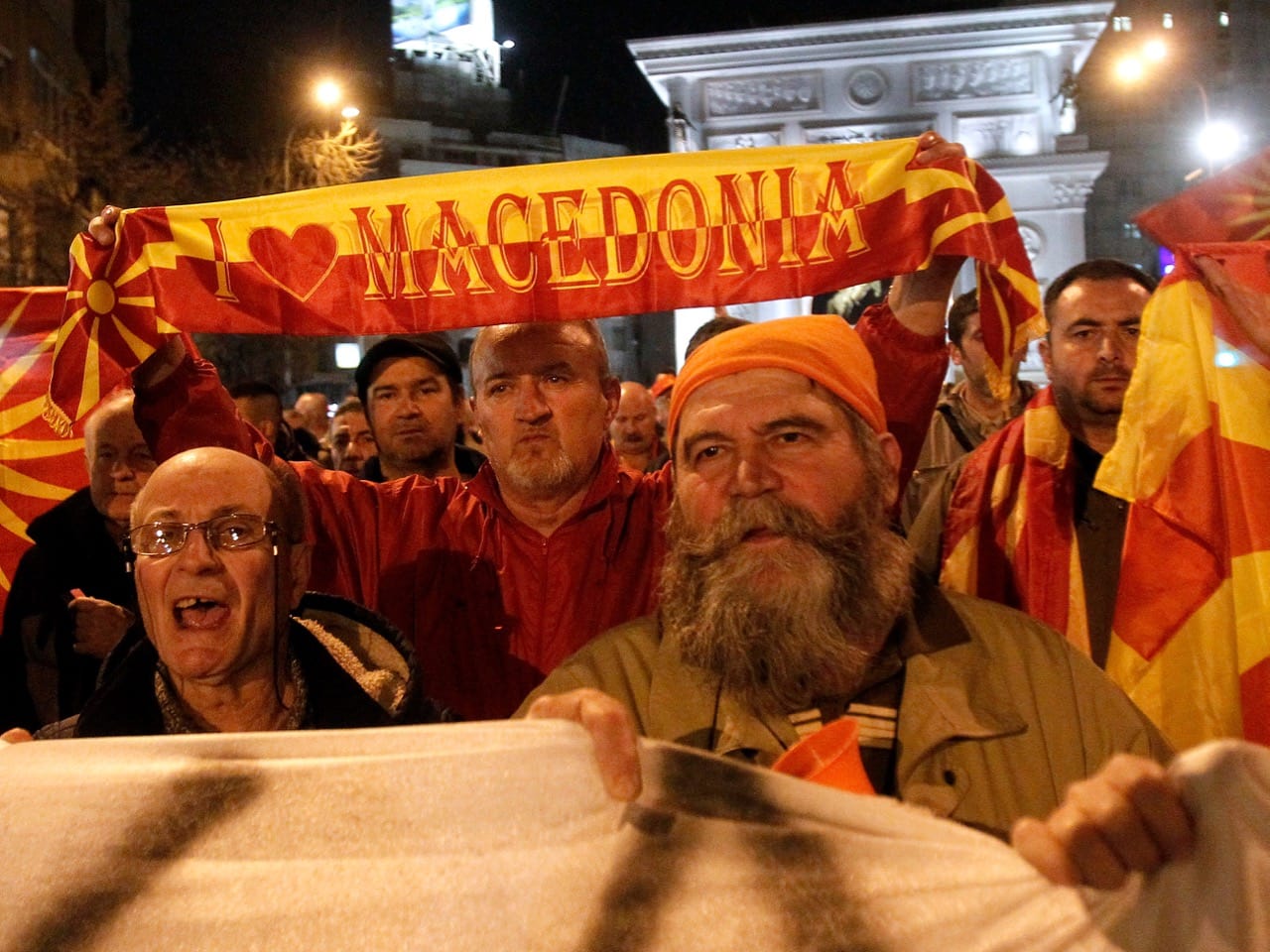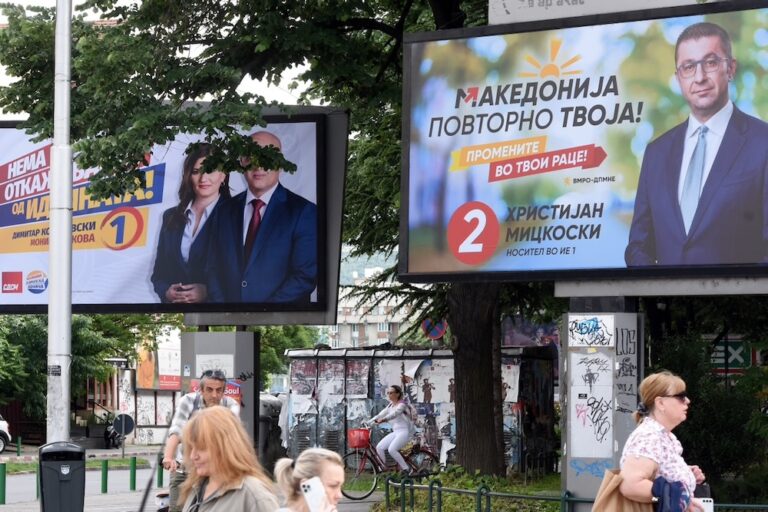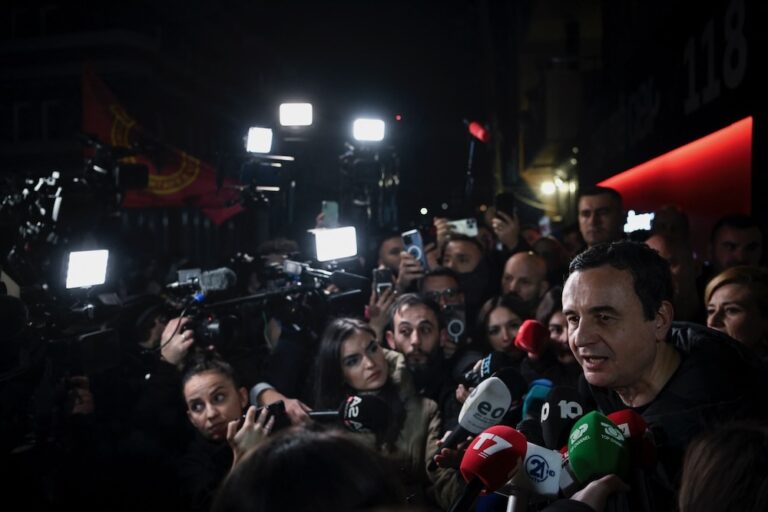RSF condemns the many attacks against Macedonian journalists at demonstrations in the capital Skopje and provincial cities in recent weeks and urges the authorities to shed light on the violence.
This statement was originally published on rsf.org on 8 March 2017.
Reporters Without Borders (RSF) condemns the many attacks against Macedonian journalists at demonstrations in the capital Skopje and provincial cities in recent weeks and urges the authorities to shed light on the violence.
The unrest is being fuelled by a three-month-old political crisis that has created a hostile climate for media freedom in Macedonia.
Many journalists say they have been attacked during demonstrations by supporters of the nationalist party VMRO-DPMNE, which has ruled for the past decade. It won the largest bloc of parliamentary seats in large December’s elections but not an absolute majority.
Ten days ago, VMRO-DPMNE called on its supporters to take to the streets to prevent the opposition social democratic party (SDSM) from forming a government in alliance with parties that represent Macedonia’s Albanian minority. Such a coalition would threaten Macedonia’s unity, the nationalist party said.
A1 TV journalists Aleksandar Todevski and Vladimir Zhelchevski were attacked by five demonstrators while covering a protest against the formation of an SDSM-led coalition on 28 February 2017. Their equipment was smashed and both had to be hospitalized with a concussion. Neither has so far been able to return to work.
Other journalists say they have often been the targets of intimidatory acts and insults that are being filmed and posted on social networks by the perpetrators – small groups egged on by VMRO-DPMNE.
Ana Patrusheva of the Balkan Investigative Reporting Network (BIRN) said her personal details were posted on Twitter, while NovaTV journalist Borjan Jovanovski said he had been insulted and spat on.
The lack of an imminent solution to the political crisis and the virulence of the statements being made by some party leaders suggest that the attacks will continue and could become even more frequent.
Fearing a new threat to Balkan stability, several European Union leaders have urged Macedonian President Gjorge Ivanov to act quickly to resolve the crisis.
“In this tense context, we call on all politicians to act with restraint and to avoid an escalation in violence,” said Pauline Adès-Mével, the head of RSF’s EU-Balkan desk. “We also ask the authorities to guarantee the safety of journalists, so that they are able to work properly.”
Macedonia is ranked 118th out of 180 countries in RSF’s 2016 World Press Freedom Index.



